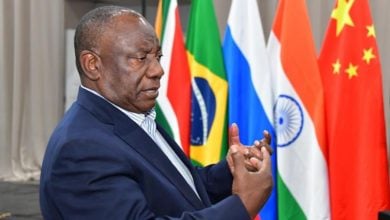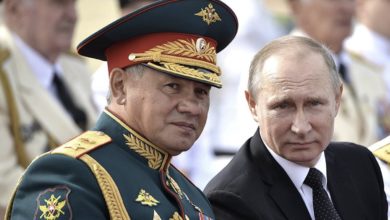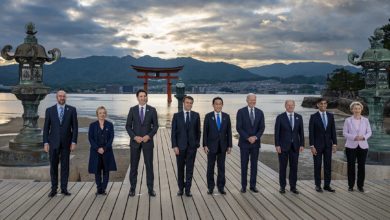Lenin and the Bolshevik Party did something that had never been done before in history. They helped lead the first successful socialist revolution.
The Russian Revolution inspired the world’s oppressed masses and helped change the world relationship of forces. Lenin’s ideas influenced revolutions in China, Korea, Yugoslavia, Vietnam, Cuba, Nicaragua and beyond. His theories and revolutionary example continue to inspire.
But what made Lenin and the Bolsheviks different from other revolutionaries of their time?
Among his most important contributions were the role of revolutionary leadership and the need to build a party of professional revolutionaries. Lenin helped to clarify the role of the capitalist state and the necessary components of a socialist revolution. He also explained capitalism’s transition to monopoly capitalism and imperialism as well as the socialist position on the right of oppressed nations to self-determination. Finally, Lenin advanced the strategy of revolutionary defeatism, or turning imperialist war into a class war with the purpose of defeating the capitalist class in a time of crisis.
Lenin greatly expanded the Marxist understanding of the capitalist state. In “State and Revolution,” he argued that only through the working class seizing the means of production and smashing the capitalist state could a socialist state become a reality. This is because the interests of the working class and the capitalist class cannot be reconciled. In the struggle between oppressor and oppressed, the state protects the interests of the ruling class.
In other words, the only way to build socialism, defend the revolution, and ultimately get rid of classes is for the working class, the vast majority of society, to seize political power.
This did not mean that Lenin advised socialists not to participate in capitalist “democracy.” He understood the importance of fighting for reforms on a class-struggle basis. And he saw bourgeois elections as an arena for Marxists to get their revolutionary program to the proletariat.
In 1902 Lenin wrote, “What is to be done?” The pamphlet was Lenin’s argument for the need to organize a new type of party. He argued that primitive methods of organizing socialist parties were inadequate for the task of leading a socialist revolution against a centralized capitalist state. The proletariat would not be able to overthrow the capitalist state with a loose organization of sympathizers and individuals. What was needed was a disciplined party of professional revolutionaries who made revolutionary activity a part of their everyday lives.
Lenin created the concept of democratic centralism for the internal organization of the party. He understood that the party cannot accomplish its task without centralization and cannot function effectively if its members do not become democratically responsible for its activities and program.
The party holds elections within its ranks to elect its leadership and to make decisions on the best way to move forward. Once a decision is made, through a majority vote when possible, all within the party help to implement and defend the decision. Lenin referred to this method of organizing as “freedom of discussion, unity of action.”
Democratic centralism allows the party to function in a flexible, unified manner and makes it possible for the working class to have at its disposal an organization that can help take advantage of revolutionary situations. When revolutionary situations arise, a party of revolutionaries steeled in struggle is necessary to lead the proletariat in a successful socialist revolution.
Main components of a successful revolution
According to Lenin, the main components of a successful socialist revolution are: (1) a profound crisis in society, usually an economic crisis or imperialist war, (2) a mood amongst great numbers of the oppressed masses that the current system is no longer tolerable, and (3) a revolutionary socialist party that has won the trust of the masses through struggle and is able through accumulated experience to convert words into action.
Of these three, the working class vanguard only has control over what kind of party is available to it during a revolutionary crisis. And this party must be built in advance of the crisis.
Lenin also analyzed the relations between countries in the imperialist epoch in his book “Imperialism, the Highest Stage of Capitalism.” Imperialism results after monopolization occurs in an industrialized state—when only a few corporations, banks and insurance companies control most of society’s wealth. When this occurs, capitalism’s unstoppable urge to expand or die is not held within its own borders. The capitalists of an industrialized country, like the United States, Great Britain and France, invade other less-industrialized countries, like Iraq, Afghanistan and Palestine, and rob them of their natural resources.
In response to the questions posed by the advanced stage of capitalism, Lenin gave an answer that was way ahead of his time, which was his support of the right of oppressed nations to self-determination. He argued that it was the responsibility of the socialist parties of imperialist nations to support the people of the oppressed nations in their struggle for self-determination regardless of the class character of the leadership of the national liberation struggle. Every nation has the right to determine its destiny. In other words, workers and the oppressed are allies in the struggle against imperialism.
Lenin and the Bolsheviks did not only theorize. They put their ideas into practice. They organized a party and helped develop the consciousness of the workers, soldiers and peasants of the multinational Russian Empire over a period of 15 years.
After three years of mass slaughter of workers in World War 1, which was really a bloody contest between imperialist powers to see who would be dominant in the world, a revolutionary crisis swept Russia. In February of 1917, the people overthrew the tsar. In October, Lenin called for an insurrection. The Bolsheviks and workers overthrew the capitalist state and organized a workers’ state to defend the revolution.
Lenin’s birthday is important—not because of any fetish for individuality—but for his contributions to the struggle and for his insistence on the need to build a party of leaders that can help organize the working class for its historic task of getting rid of class society once and for all.






